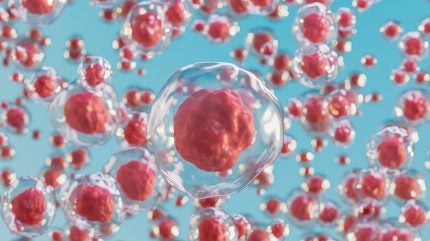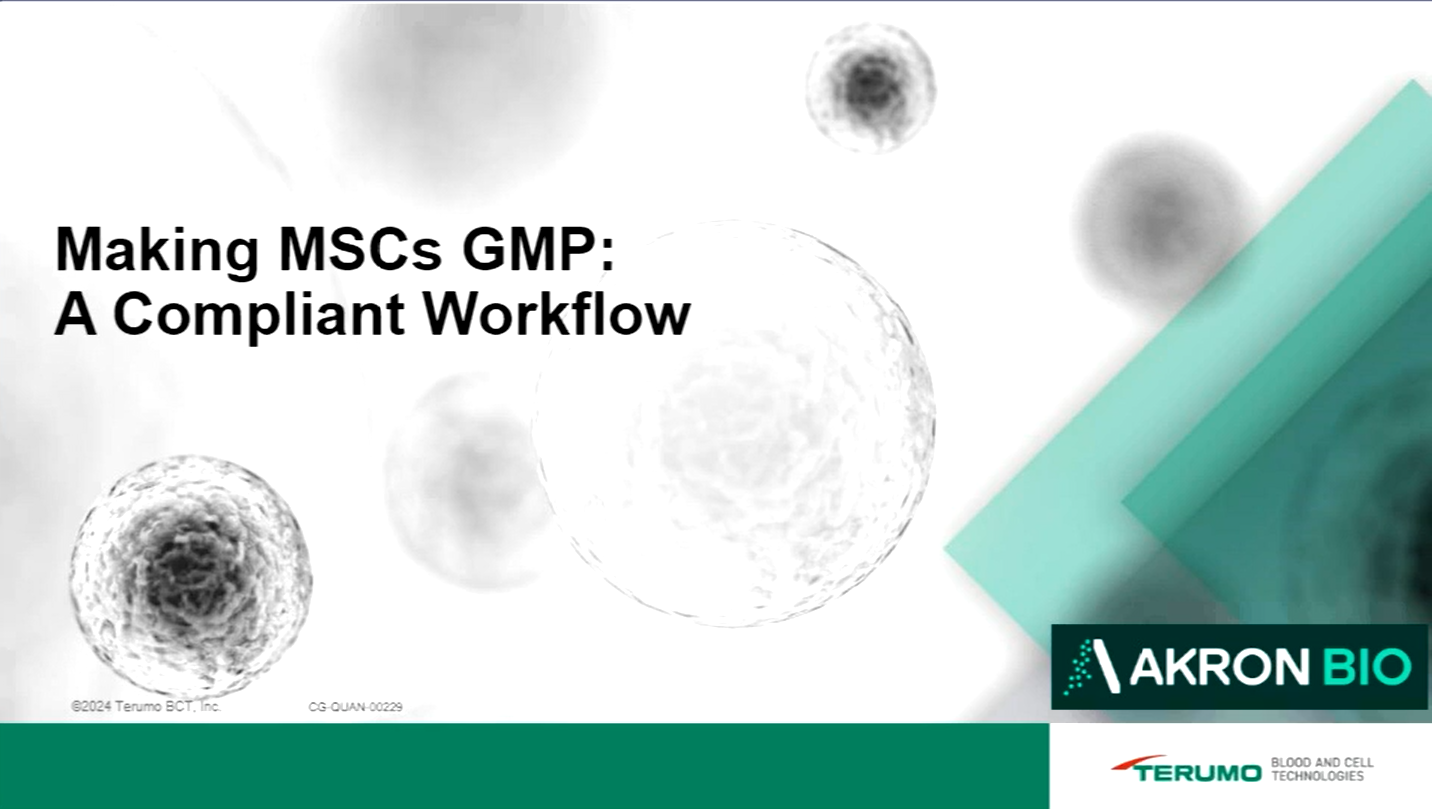
As cell and gene therapies become more prevalent, the need for streamlined, GMP-compliant MSC production continues to grow. Laboratories must keep pace with the demands of commercial-scale cell therapy.
A webinar led by Terumo Blood and Cell Technologies discussed advances in creating a GMP-compliant workflow for MSC production, explaining the capabilities of the company’s Quantum Flex™ Cell Expansion System and its collaboration with Akron Biotech.
Managing the cell therapy workflow
For researchers and clinicians, the ability to automate and monitor critical cell culture processes could redefine the standard for MSC expansion. With its innovative design and compatibility with GMP-grade reagents, the Quantum Flex system is set to be an essential tool for advancing cell therapy workflows.
With contamination a major risk in manufacturing cell and gene therapies, the webinar discussed how Quantum Flex provides a functionally closed system — offering a critical advantage over open-culture systems.
“Quantum Flex is a GMP-compliant device for the expansion of a range of cell types,” explained Nathan Frank, senior scientist at Terumo Blood and Cell Technologies. “We have a touchscreen interface, so protocols can be modified daily based on readings.”1
With scalability a key obstacle in cell and gene therapy production, Quantum Flex offers a solution through customizable protocols in its Cell Processing Application (CPA™).1 “It allows you to be infinitely creative in how you set up your protocols,” Frank explained. This flexibility enables seamless scaling from small to large bioreactors, critical for GMP compliance and meeting the volume needs of commercial cell therapy production.
Enhancing the quality of cell cultures
In the webinar, Frank demonstrated how efficiency in cell seeding emerged as a major focus of the Quantum Flex design. “We used a loading procedure that was custom designed not only to have a high seeding efficiency, but also to maximize seeding distribution,” he said.2
The Quantum Flex bioreactor’s hollow-fiber membrane ensures optimal growth conditions by maintaining minimal shear stress — a key factor in cell culture success. With consistent 90% seeding efficiency,3 Quantum Flex demonstrates an effective, scalable solution for MSC production.
Furthermore, Terumo Blood and Cell Technologies’ focus on quality metrics extended beyond cell yields to include a thorough assessment of cell characteristics. MSCs expanded on the Quantum Flex system adhered to established quality standards, expressing key markers in CD73, CD90, and CD105.
“These [quality metrics] results indicate that the MSCs were expanded successfully and retained the desired MSC phenotype as defined by the ISCT,” according to Frank.
To reduce production variability, in-process monitoring is vital. Through lactate generation rate (LGR) analysis, users can accurately predict MSC yields without relying solely on confluence measurements, which can vary significantly. Quantum Flex also offers integrated sampling for metabolic monitoring, allowing researchers to fine-tune the media supply based on real-time data — a significant enhancement for consistency and efficiency.
Improving MSC yield
“It was the Akron GMP-grade fibronectin that was used to coat the membrane of the Quantum Flex as an adherent promoter for the attachment and expansion of mesenchymal stem cells,” said Frank. Using that fibronectin, the system successfully cultured MSCs, achieving both high yield and consistency across all sample groups in the collaboration.
“All the quality metrics from every treatment group were excellent,” reflected Frank. “They all were right on top of one another, showing no difference in terms of the cell’s ability to differentiate and express certain markers.”
To learn more and watch the full webinar, fill out the form below.



